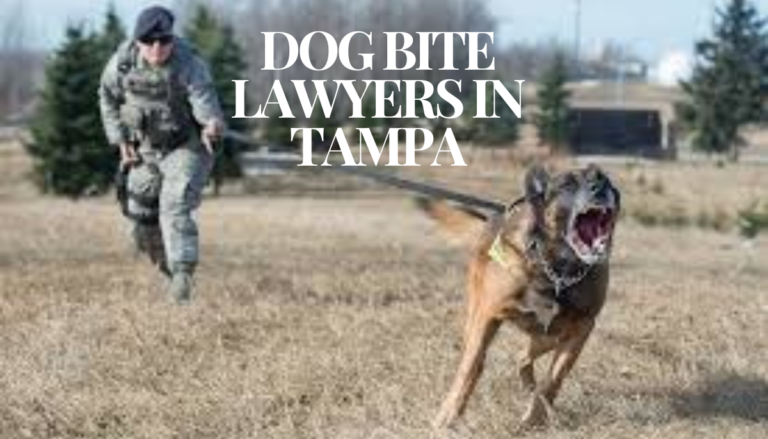Dog Laws in Nevada
As a vet, I see the joy dogs bring to people’s lives every day. But did you know that in the US alone, over 63 million households have a canine companion? With so many furry friends around, it’s no surprise there are laws in place to keep them safe and happy.
Here in Nevada, understanding dog laws goes beyond just preventing a barking ticket. These laws cover everything from licensing and leash requirements to responsible pet ownership and preventing the spread of disease. Whether you’re a seasoned dog owner or a new puppy parent, knowing the legalese can make all the difference for you and your four-legged friend.
Table of Contents
Dog Bite Laws in Nevada
Nevada’s breathtaking landscapes and vibrant cities make it a fantastic place for both humans and canines to call home. But with so many furry friends around, understanding dog bite laws becomes crucial for both dog owners and anyone interacting with dogs.
Here’s the thing: Unlike most states, Nevada doesn’t have a single, unified dog bite statute. This can make things a bit confusing. But fret not, pet parents and dog enthusiasts! This guide will untangle the legalese and provide a clear picture of Nevada’s dog bite laws.
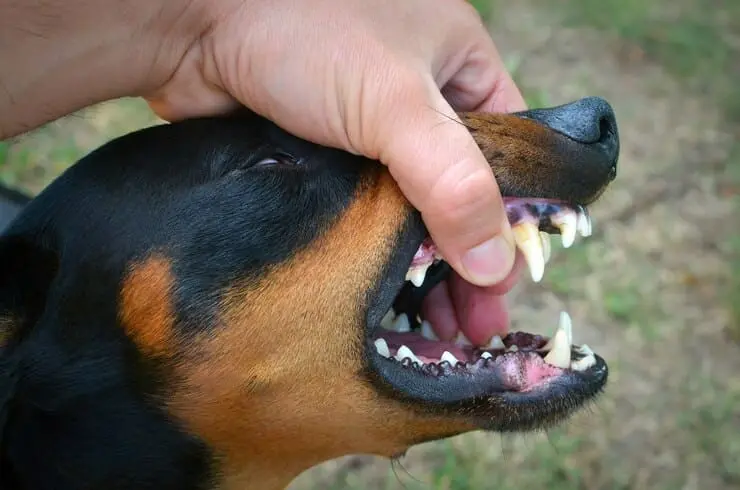
The “One Bite Rule”: Navigating Uncharted Territory
Nevada falls under the category of a “one-bite rule” state. This legal principle essentially states that a dog owner can’t be held strictly liable for the first bite their dog inflicts. However, there’s a crucial caveat. For subsequent bites, the owner can be held responsible if they knew (or should have known) about the dog’s aggressive tendencies.
Building a Case: Proving Negligence in Dog Bites
While the “one-bite rule” might seem to favor dog owners, there’s still a path to holding them accountable for dog bites in Nevada. Here’s where the concept of negligence comes in. If you’ve been bitten by a dog, you can potentially sue the owner for negligence if you can prove:
- The dog owner had a duty to control their dog. This includes keeping it leashed, properly secured in a fenced yard, or using a muzzle in situations where the dog might pose a threat.
- The owner breached this duty. Examples include leaving the dog unattended off-leash in public spaces, failing to maintain a secure fence, or ignoring previous aggressive behavior.
- This breach of duty directly caused your injury. The bite you suffered must be a direct consequence of the owner’s negligence.
- You suffered damages. This can include medical bills, lost wages due to injury, and emotional distress.
By demonstrating these elements, you can build a strong case for negligence and potentially recover compensation for your injuries.
Nevada’s “Dangerous Dog” Laws
Even in the absence of a prior bite, Nevada has laws in place to address dangerous dogs. NRS §202.500 classifies dogs as either “dangerous” or “vicious.” Here’s the breakdown:
- Dangerous Dog: A dog that has displayed behavior that could cause serious bodily harm, such as growling, snapping, or chasing in a menacing way.
- Vicious Dog: A dog that has actually inflicted serious bodily harm on a person, domestic animal, or livestock (excluding trespassers or people provoking the dog).
If your dog is deemed dangerous or vicious by animal control, the following consequences may apply:
- Quarantine: The dog might be quarantined for observation to assess potential rabies exposure.
- Leash and Muzzle Requirements: The dog might be required to be leashed and muzzled whenever in public spaces.
- Financial Responsibility: The owner might be held financially responsible for any future attacks by the dog.
- Potential Euthanasia: In extreme cases, the court might order the euthanasia of a dog deemed a severe threat to public safety.
Local Ordinances
While Nevada lacks a statewide dog bite statute, individual counties and cities can enact their own ordinances. These local regulations might include stricter leash laws, bite reporting requirements, or specific breed restrictions.
Therefore, it’s crucial to check the ordinances specific to your city or county. Here are some resources to help you find the relevant local laws:
- County Websites: Most county websites have a section dedicated to animal control or code enforcement.
- Municipal Websites: Similarly, city websites often have information on local dog ordinances.
- Nevada Revised Statutes (NRS): You can search the NRS online for relevant dog-related laws Nevada Revised Statutes.
Dog Barking and Noise Laws in Nevada
Nevada, the “Silver State,” is a land of dazzling casinos, breathtaking landscapes, and a vibrant community. But with so many people enjoying life in Nevada, it’s no surprise that noise ordinances exist to maintain peace and quiet. And let’s be honest, sometimes our furry friends can become furry vocalists, leading us to the question: “What are the dog barking and noise laws in Nevada?”
Here’s the good news: Nevada doesn’t have a single, unified dog barking law. However, there are still regulations in place to address excessive noise from our canine companions. This guide will delve into the legalese and provide a clear picture of how Nevada handles dog barking and noise complaints.

Understanding “Nuisance Barking”: The Heart of the Issue
Nevada, like many states, follows the principle of “nuisance barking.” This means that occasional barking is simply a normal part of dog behavior and isn’t considered a violation. However, excessive, prolonged, or unreasonable barking that disrupts the peace and quiet of the neighborhood can be considered a nuisance.
The Importance of “Reasonableness”: Defining Excessive Barking
Unfortunately, there’s no one-size-fits-all definition of “excessive barking” in Nevada. The concept hinges on “reasonableness.” Factors that might be considered include:
- Duration and Frequency: How long does the barking last? Does it happen constantly, sporadically, or at specific times of the day?
- Volume: Is the barking excessively loud, or is it just audible?
- Cause: Is the dog barking due to a trigger (like seeing another dog) or for no apparent reason?
- Impact on the Neighborhood: Does the barking significantly disrupt the peace and quiet of those living nearby?
Local Ordinances
While Nevada lacks a statewide dog barking law, individual counties and cities can enact their own ordinances. These local regulations might define “excessive barking” with more specific criteria, such as:
- Maximum allowable duration of continuous barking (e.g., 10 minutes)
- Time restrictions (e.g., barking limitations during nighttime hours)
- Exceptions for specific situations (e.g., barking in response to an intruder)
The Role of Animal Control in Barking Complaints
If you’re experiencing excessive barking from a neighbor’s dog, the first step is often a friendly conversation with the owner. However, if the issue persists, you can file a noise complaint with your local animal control agency.
Here’s what to expect:
- Complaint Filing: Contact your local animal control and provide details about the barking, including frequency, duration, and impact on your well-being.
- Investigation: An animal control officer might visit the property to assess the situation and potentially speak with the dog owner.
- Resolution: Animal control aims to resolve the issue amicably through education and mediation. They might offer resources for dog training or suggest solutions to address the cause of the barking.
Fines and Legal Action
If the barking persists despite intervention from animal control, the agency may issue citations with associated fines. In extreme cases, they might even impound the dog.
However, it’s important to note that Nevada courts generally follow a “graduated enforcement” approach. This means fines will likely escalate for repeat offenses.
Documenting Excessive Barking
If you need to file a complaint, documenting the barking behavior is crucial. Here are some tips:
- Keep a Log: Record the date, time, duration, and nature of the barking.
- Collect Evidence: Consider video or audio recordings of the barking behavior (ensure compliance with local recording laws).
- Gather Witness Statements: If other neighbors are also bothered by the barking, obtain signed statements from them.
By creating a detailed record, you can strengthen your case and support your complaint.
Preventing Barking Issues: Proactive Solutions
Here are some proactive steps dog owners can take to prevent excessive barking complaints:
- Provide Adequate Exercise and Mental Stimulation: A tired dog is a less vocal dog. Ensure your furry friend gets enough physical activity and mental stimulation through walks, playtime, and interactive toys.
- Address Underlying Causes: Is your dog barking due to separation anxiety, boredom, or fear? Identify the trigger and address it through training or environmental changes.
- Desensitization and Counterconditioning: Train your dog to associate potential triggers with positive experiences, reducing the urge to bark.
- Consider Professional Help: A certified dog trainer can provide valuable guidance for addressing barking issues.
Dog Poop Disposal Laws in Nevada
Nevada’s stunning landscapes and vibrant cities are a magnet for both humans and their canine companions. But with great dog ownership comes great responsibility, and that includes the not-so-glamorous task of poop patrol. So, what are the legalities surrounding dog waste disposal in the Silver State?

Why Proper Disposal Matters
Leaving dog waste behind isn’t just a matter of courtesy; it’s a public health concern and a potential violation of local ordinances. Here’s why proper disposal is essential:
- Public Health Risks: Dog feces can harbor harmful bacteria and parasites that pose a threat to humans and other animals.
- Environmental Hazards: Left uncollected, dog waste can contaminate waterways and disrupt ecosystems.
- Unsightly and Unpleasant: No one enjoys stepping in (or smelling) dog poop. Proper disposal keeps our communities clean and enjoyable for everyone.
The Legal Landscape: A Patchwork of Local Ordinances
Unlike some states, Nevada lacks a single, overarching law on dog poop disposal. Instead, the responsibility falls on individual counties and cities to enact their own ordinances. These local regulations typically address:
- Required Carrying of Waste Disposal Bags: Many ordinances mandate dog owners carry appropriate bags to collect and dispose of waste whenever walking their dog in public spaces.
- Immediate Disposal: Most ordinances require immediate and proper disposal of dog waste after your dog defecates in a public area. “Proper disposal” usually means depositing the waste in a designated trash receptacle.
- Prohibition of Leaving Waste: Leaving dog waste behind is generally prohibited under local ordinances. This includes parks, sidewalks, trails, and even other people’s property (unless express permission is granted).
Finding Your Local Ordinance
As mentioned earlier, the specifics of dog poop disposal laws vary by location. Here are some resources to help you find the relevant ordinance for your city or county:
- County Websites: Most county websites have a dedicated section for animal control or code enforcement.
- Municipal Websites: Similarly, city websites often have information on local dog ordinances.
- Contacting Animal Control: Your local animal control agency can provide information on the specific regulations in your area.
Fines and Penalties for Non-Compliance: The Cost of Neglect
Failing to comply with dog poop disposal laws in Nevada can result in fines. The exact amount can vary by location, but it’s not uncommon for fines to range from $25 to $100 or more for a first offense, with escalating penalties for repeat violations. In extreme cases, neglecting waste disposal could even lead to court appearances.
Responsible Dog Ownership for a Cleaner Nevada
While legal repercussions are a factor, responsible dog ownership goes beyond avoiding fines. Here are some additional points to consider:
- Investing in Poop Bags: Always carry a sufficient number of biodegradable waste disposal bags when walking your dog in public spaces.
- Double-Bagging for Extra Security: Consider double-bagging the waste for added security and odor control.
- Choosing Designated Disposal Locations: Look for designated dog waste disposal bins in parks and public areas. If none are available, dispose of the waste in a regular trash can.
- Leave No Trace: Always pick up after your dog, regardless of the location. Respecting our environment and keeping our communities clean is a shared responsibility.
Advocating for Dog Waste Disposal Solutions:
If your area lacks readily available dog waste disposal bins, consider contacting your local parks department or city council to advocate for their installation. Increased access to disposal options makes it easier for dog owners to be responsible pet parents.
Dog Licensing Laws in Nevada
Nevada, the dazzling “Silver State,” is a land of vibrant cities, breathtaking landscapes, and a whole lot of wagging tails. But with so many canine companions calling Nevada home, responsible pet ownership becomes crucial. One key aspect of responsible dog ownership? Understanding dog licensing laws.
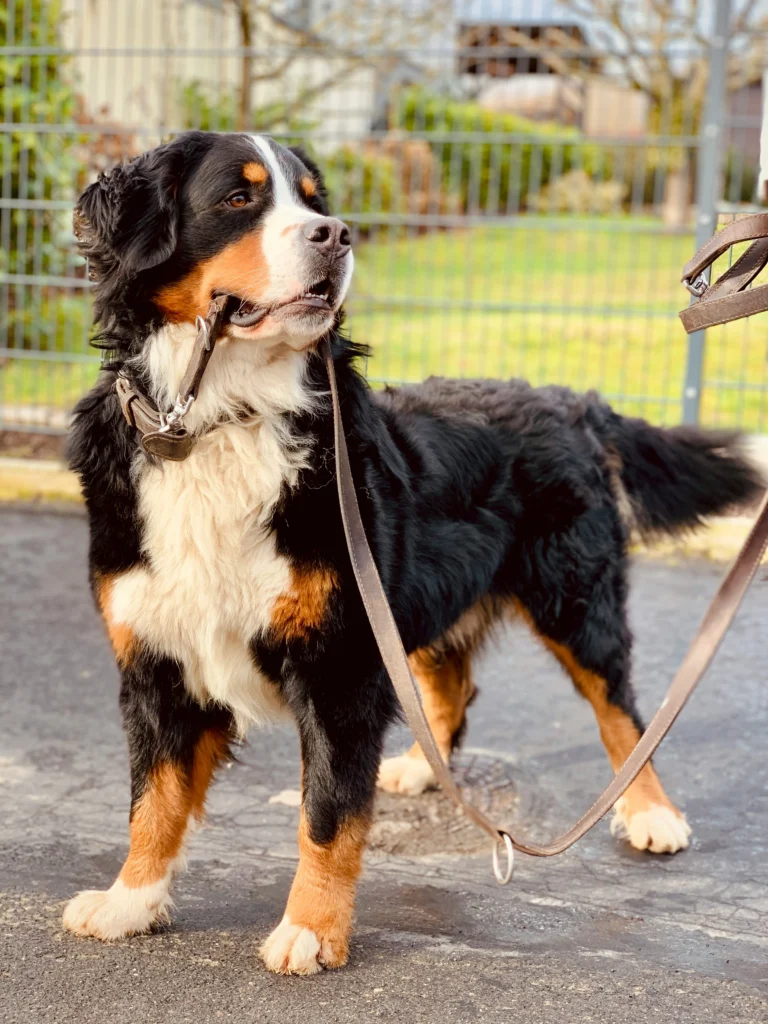
The Power of a Dog License: More Than Just a Tag
A dog license in Nevada isn’t just a decorative tag on your pup’s collar. It serves several important purposes:
- Identification: A license tag acts as official identification for your dog, making it easier to reunite you with your furry friend if they get lost.
- Vaccination Verification: In most cases, obtaining a dog license requires proof of current rabies vaccination. This helps maintain herd immunity and protects the dog population from this deadly disease.
- Funding for Animal Welfare Programs: Licensing fees often contribute to vital animal control services like sheltering lost animals, enforcing animal cruelty laws, and promoting responsible pet ownership initiatives.
The Legal Landscape: A County-by-County Approach
Unlike some states, Nevada doesn’t have a single, unified dog licensing law. Instead, the responsibility falls on individual counties and cities to enact their own ordinances. These local regulations will typically address:
- Licensing Requirements: Most ordinances require all dogs over a certain age (often 4 months) to be licensed.
- Licensing Process: The process for obtaining a license may involve submitting an application, proof of rabies vaccination, and paying a licensing fee.
- License Renewal: Dog licenses typically need to be renewed annually or at designated intervals.
- Fines for Non-Compliance: Failing to license your dog can result in fines, late fees, and potential impoundment of the animal.
Finding Your Local Ordinance
As mentioned earlier, the specifics of dog licensing laws vary by location. Here are some resources to help you find the relevant ordinance for your city or county:
- County Websites: Most county websites have a section dedicated to animal control or code enforcement, where you’ll likely find information on dog licensing requirements.
- Municipal Websites: Similarly, city websites often have information on local dog ordinances, including licensing procedures.
- Contacting Animal Control: Your local animal control agency can provide specific details on obtaining a dog license in your area.
Benefits of Licensing
While legal compliance is a key factor, there are additional benefits to licensing your dog in Nevada:
- Peace of Mind: Knowing your dog is properly identified and you’re contributing to animal welfare programs can provide peace of mind.
- Reduced Impoundment Fees: Licensed dogs are often subject to lower impoundment fees if they get lost.
- Potential Discounts: Some veterinary clinics, pet stores, or dog daycare facilities might offer discounts for licensed dogs.
The Cost of Canine Citizenship
The cost of a dog license in Nevada can vary depending on several factors:
- Location: Fees can differ between counties and cities.
- Dog’s Age: Neutered or spayed dogs often have lower licensing fees compared to unaltered dogs.
- License Duration: Some locations offer multi-year licenses at a discounted rate.
Obtaining Your Dog License
The process for obtaining a dog license in Nevada will typically involve these steps:
- Gather Required Documents: You’ll likely need proof of your dog’s rabies vaccination and spaying/neutering (if applicable).
- Complete an Application: Most locations have physical or online applications for dog licensing.
- Pay the Licensing Fee: Fees can be paid by mail, online, or in person at designated locations.
- Receive Your Dog License: Once processed, you’ll receive your dog’s license tag in the mail or can pick it up in person.
Dog Leash Laws in Nevada
Nevada, the dazzling “Silver State,” boasts vibrant cities, breathtaking landscapes, and a whole lot of wagging tails. But with so many canine companions gracing Nevada’s streets and trails, ensuring responsible dog ownership becomes crucial. A key aspect? Understanding dog leash laws.
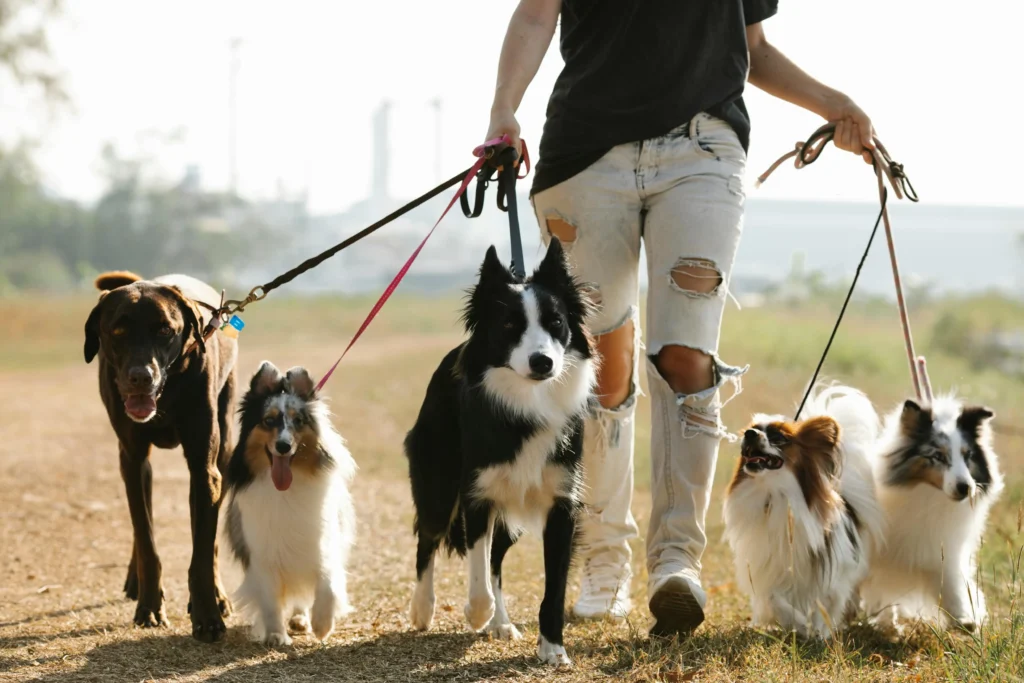
The Importance of Leashes
Leashes aren’t just fashion accessories for your pup. They play a crucial role in responsible dog ownership and public safety. Here’s why:
- Safety First: Leashes help prevent accidents and injuries. They allow you to maintain control of your dog, preventing them from running into traffic, chasing other animals, or approaching strangers who might be uncomfortable.
- Respecting Others: Not everyone enjoys canine interaction. Leashes ensure your dog doesn’t intrude on others’ personal space, promoting a sense of safety and comfort for everyone using public areas.
- Preventing Fights: Leashes significantly reduce the risk of dog-to-dog altercations, keeping both your pup and other dogs safe.
- Responsible Pet Ownership: Having your dog on a leash demonstrates responsible ownership and your commitment to public safety and canine etiquette.
The Legal Landscape
As mentioned before, Nevada lacks a unified dog leash law. Instead, counties and cities have the authority to enact their own leash ordinances.
These local regulations might cover:
- Required Leash Use: Most ordinances mandate that dogs be leashed whenever in public spaces, including sidewalks, parks, trails, and public areas (excluding designated off-leash dog parks).
- Leash Length Restrictions: Some ordinances might specify the maximum allowable leash length, often ranging from 6 to 10 feet.
- Exemptions for Service Animals: Federally recognized service animals are generally exempt from leash laws while performing their duties.
- Penalties for Non-Compliance: Failing to leash your dog in accordance with local ordinances can result in fines, potential impoundment of the animal, and additional fees.
Finding Your Local Leash Law
The specifics of dog leash laws can vary significantly by location. Here’s how to find the relevant ordinance for your city or county:
- County Websites: Most county websites have a section dedicated to animal control or code enforcement, where you’ll likely find information on leash laws.
- Municipal Websites: Similarly, city websites often have information on local dog ordinances, including leash regulations.
- Contacting Animal Control: Your local animal control agency can provide specific details on leash laws in your area.
Responsible Leash Use
While following local leash laws is essential, responsible leash use goes beyond simply having your dog on a leash. Here are some additional tips:
- Choose the Right Leash: Select a leash that’s sturdy and appropriate for your dog’s size and strength. Retractable leashes can be useful, but require proper training and handling.
- Practice Leash Walking: Train your dog to walk calmly and comfortably on a leash, preventing pulling or lunging behaviors.
- Maintain Control: Always maintain control of your dog while on a leash, keeping them close enough to prevent unwanted interactions with others.
- Be Mindful of Others: Be courteous to fellow park users and avoid letting your dog intrude on others’ space.
Off-Leash Dog Parks
While leash laws are essential for public safety, many Nevada cities and counties offer designated off-leash dog parks. These fenced-in areas allow dogs to socialize and play freely under their owner’s supervision.
However, using a dog park responsibly requires following specific etiquette:
- Ensure Your Dog is Properly Socialized: Off-leash dog parks are for well-socialized dogs who can interact safely with other canines.
- Clean Up After Your Dog: Always dispose of your dog’s waste properly using designated waste disposal stations in the park.
- Maintain Supervision: Never leave your dog unattended off-leash, even in a dog park.
- Respect Other Park Users: Be mindful of other dogs and their owners, ensuring your dog isn’t overly exuberant or aggressive.
Dangerous Dog Laws in Nevada
Nevada, the “Silver State,” is a land of vibrant cities, breathtaking landscapes, and a whole lot of wagging tails. But with so many canine companions calling Nevada home, ensuring public safety becomes paramount. This is where dangerous dog laws come into play.

The Importance of Responsible Dog Ownership
Every dog has the potential to bite, but responsible ownership plays a crucial role in preventing such incidents. Here’s why understanding dangerous dog laws is important:
- Public Safety: Dangerous dog laws aim to protect the community from dogs exhibiting aggressive behavior that could lead to serious injury.
- Responsible Pet Ownership: Understanding these laws encourages responsible ownership practices that minimize the risk of aggressive behavior.
- Potential Legal Ramifications: If your dog is classified as dangerous, you might face legal consequences and ownership restrictions.
Classifications of Dangerous Dogs in Nevada
Nevada Revised Statutes (NRS) §202.500 outlines two classifications for dogs deemed a threat:
- Dangerous Dog: A dog that has displayed behavior that could cause serious bodily harm, such as growling, snapping, or chasing in a menacing way. This classification doesn’t require an actual bite to occur.
- Vicious Dog: A dog that has actually inflicted serious bodily harm on a person, domestic animal, or livestock (excluding trespassers or people provoking the dog).
The Process of Declaring a Dog Dangerous or Vicious
There’s no single, standardized process for declaring a dog dangerous or vicious in Nevada. The procedure typically involves:
- Animal Control Investigation: Following a reported incident, animal control might investigate the situation and assess the dog’s behavior.
- Evidence Gathering: Animal control officers will gather evidence, such as witness statements and veterinary records.
- Hearing with Animal Control: In some cases, a hearing might be held with animal control to determine the dog’s classification.
- Potential Court Involvement: Serious cases involving vicious dogs might involve court proceedings.
Potential Consequences for Dangerous or Vicious Dogs
If your dog is classified as dangerous or vicious in Nevada, you might face the following consequences:
- Quarantine: The dog might be quarantined for observation to assess potential rabies exposure and its overall health.
- Leash and Muzzle Requirements: The dog might be required to be leashed and muzzled whenever in public spaces. This ensures increased control and minimizes the risk of further incidents.
- Financial Responsibility: The owner might be held financially responsible for any future attacks by the dog.
- Potential Euthanasia: In extreme cases, the court might order the euthanasia of a dog deemed a severe threat to public safety.
Preventing Dangerous Dog Situations
Here are some proactive steps you can take to prevent your dog from being classified as dangerous:
- Proper Training and Socialization: Invest in professional dog training to instill good manners and obedience in your furry friend. Early socialization also helps your dog interact comfortably with other dogs and people.
- Spaying or Neutering: Spaying or neutering your dog can reduce territorial and aggressive tendencies in some cases.
- Understanding Your Dog’s Body Language: Learn to recognize signs of stress or anxiety in your dog to address potential triggers before they escalate.
- Responsible Ownership: Always supervise your dog, especially around unfamiliar people or animals.
- Seeking Help with Behavior Issues: If you’re concerned about your dog’s behavior, consult a professional dog behaviorist for guidance.
Resources for Dog Owners in Nevada
Here are some resources that might be helpful for dog owners in Nevada:
- Nevada Revised Statutes: NRS §202.500 outlines the legal definitions of dangerous and vicious dogs [link to Nevada Revised Statutes online – invalid URL removed].
- Nevada State Bar Association: You can find a lawyer specializing in animal law for legal advice regarding your specific situation.
- Local Animal Control Agencies: Contact your local animal control agency for information on specific procedures and regulations in your area.
Dog Health and Welfare Laws in Nevada
Nevada, the “Silver State,” boasts vibrant cities, stunning landscapes, and countless furry companions. But with so many canine residents, ensuring their well-being becomes a priority. This is where dog health and welfare laws come into play.
While Nevada doesn’t have a single, unified code dedicated solely to dog health and welfare, several existing laws and regulations contribute to a framework for responsible pet ownership. This comprehensive guide will delve into these legalities, empowering you to provide the best possible care for your canine friend.
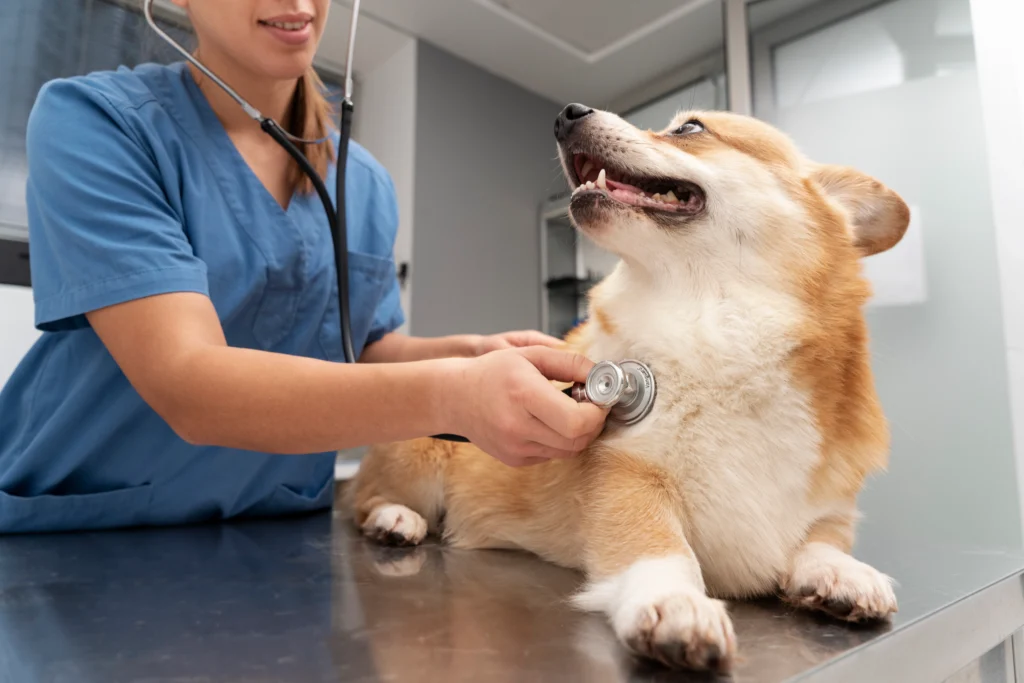
The Cornerstone of Care: Addressing Animal Cruelty
The foundation of dog health and welfare in Nevada lies in addressing animal cruelty. Nevada Revised Statutes (NRS) Chapter 574, Section 100, outlines the legal definition and penalties for animal cruelty. This includes:
- Torture, Overdriving, or Injuring: Willfully inflicting unnecessary pain or suffering on an animal is prohibited.
- Deprivation of Sustenance: Failing to provide adequate food, water, and shelter constitutes animal cruelty.
- Abandonment: Leaving an animal behind without proper care and control is illegal.
Enforcement and Reporting
Animal control officers are responsible for investigating suspected animal cruelty cases. If you witness or suspect animal cruelty, you have a legal responsibility to report it. Here’s how:
- Contact Your Local Animal Control Agency: This is the most direct route for reporting suspected cruelty.
- Nevada Society for the Prevention of Cruelty to Animals (NSPCA): The NSPCA offers a cruelty hotline and can provide guidance on reporting procedures.
Additional Considerations for Dog Health and Welfare
While the anti-cruelty law forms the core, other aspects contribute to a dog’s well-being in Nevada:
- Vaccinations: Most counties and cities in Nevada require dogs to be vaccinated against rabies. Vaccinations protect your dog and the community from this deadly disease.
- Tethering Restrictions: Some Nevada municipalities have ordinances restricting how long a dog can be tethered outdoors. These regulations aim to prevent discomfort and potential injuries associated with excessive tethering.
- Transportation: Laws exist regarding the safe transport of animals in vehicles. Ensure your dog is properly secured during car rides to prevent injury.
Finding Local Regulations
As mentioned earlier, specific dog health and welfare regulations might vary by location. Here’s how to find the relevant ordinances in your area:
- County Websites: Most county websites have a dedicated section for animal control or code enforcement.
- Municipal Websites: Similarly, city websites often have information on local animal welfare regulations.
- Contacting Animal Control: Your local animal control agency can provide specific details on dog health and welfare laws in your area.
Proactive Measures for Dog Wellness
While legal requirements are essential, responsible pet ownership goes beyond just following the law. Here are some proactive steps you can take to ensure your dog’s health and well-being:
- Regular Veterinary Care: Schedule regular checkups with your veterinarian, ensuring your dog receives necessary vaccinations, parasite prevention, and any required treatment for health issues.
- Proper Nutrition: Provide your dog with a balanced diet appropriate for their breed, age, and activity level.
- Exercise and Enrichment: Exercise is crucial for your dog’s physical and mental health. Engage in daily walks, playtime, and mental stimulation activities.
- Responsible Breeding Practices: Consider spaying or neutering your dog to prevent unwanted litters and contribute to responsible pet ownership.
- Understanding Your Dog’s Needs: Learn about your dog’s breed-specific needs and tailor your care accordingly.
Additional Resources for Dog Owners in Nevada
Here are some resources that can be helpful for dog owners in Nevada:
- Nevada State Board of Veterinary Medicine: This website provides information on licensed veterinarians in your area.
- American Veterinary Medical Association (AVMA): The AVMA website offers a wealth of information on pet health and wellness.
- Nevada Humane Society: The Nevada Humane Society provides resources for responsible pet ownership and animal welfare advocacy.
Dog Public Access Laws in Nevada
Nevada, the “Silver State,” boasts vibrant cities, breathtaking landscapes, and countless canine companions. But with so many furry friends joining us in our daily adventures, navigating public access can be confusing. This guide explores dog public access laws in Nevada, empowering you to enjoy responsible outings with your pup.
While Nevada lacks a single, unified law governing dog access to public spaces, individual counties and cities establish their own ordinances. Here’s the key takeaway: understanding local regulations is crucial for ensuring a smooth and enjoyable experience for both you and your dog.

The Benefits of Public Access for Dogs
Dog-friendly public spaces offer numerous benefits:
- Exercise and Enrichment: Exploring new environments provides crucial physical and mental stimulation for dogs.
- Socialization: Dog parks and designated areas allow safe interaction with other canines, promoting good social behavior.
- Strengthening the Human-Animal Bond: Shared experiences in public spaces contribute to a deeper connection between you and your furry friend.
- Boosting Community Spirit: Dog-friendly environments create opportunities for interaction and foster a sense of community among dog owners.
Public Access Restrictions
Despite the benefits, public access for dogs often comes with limitations. Here are some common restrictions you might encounter:
- Leash Laws: Most Nevada counties and cities require dogs to be leashed in public spaces like sidewalks, parks, and trails (excluding designated off-leash dog parks). Leash length restrictions might also apply.
- Breed-Specific Restrictions: Some locations might have restrictions on certain dog breeds, particularly those historically associated with aggressive behavior.
- Prohibited Areas: Certain areas, like playgrounds or swimming pools, might be off-limits to dogs entirely.
Finding Local Dog Public Access Regulations
The specifics of dog public access laws can vary significantly by location. Here’s how to find the relevant ordinance for your city or county:
- County Websites: Most county websites have a section dedicated to animal control or code enforcement, where you’ll likely find information on dog access regulations.
- Municipal Websites: Similarly, city websites often have information on local animal ordinances, including public access restrictions.
- Contacting Animal Control: Your local animal control agency can provide specific details on dog access rules in your area.
Responsible Public Access Etiquette
While following local laws is essential, responsible public access goes beyond legal compliance. Here are some additional tips for a positive experience:
- Respecting Others: Not everyone enjoys canine interaction. Be mindful of others’ space and keep your dog leashed unless in a designated off-leash area.
- Picking Up After Your Dog: Always dispose of your dog’s waste properly using designated waste disposal stations. This is not only courteous but also helps prevent the spread of disease.
- Maintaining Control: Ensure you have control of your dog at all times, preventing unwanted interactions with other dogs or people.
- Be a Canine Citizen: A well-behaved dog reflects positively on all dog owners. Train your dog on basic obedience commands for a smooth and enjoyable public outing.
Dog-Friendly Establishments
Beyond public spaces, many Nevada businesses are becoming increasingly dog-friendly. Here’s how to find dog-welcoming establishments:
- Online Directories: Websites and apps like BringFido or Yelp can help you locate dog-friendly restaurants, cafes, and shops in your area.
- Look for Signs: Many businesses display signage indicating their dog-friendly policies.
- Call Ahead: It’s always courteous to confirm a business’s dog policy before bringing your furry friend along.
Advocating for Dog-Friendly Spaces
Nevada’s dog-friendly landscape is constantly evolving. If you’d like to see more dog-friendly public spaces or businesses, here are some things you can do:
- Support Dog-Friendly Businesses: Patronize pet-welcoming establishments to show businesses the value of dog-inclusive policies.
- Contact Local Officials: Express your support for creating more dog-friendly parks, trails, or public areas in your community.
- Promote Responsible Dog Ownership: Being a responsible owner and advocating for leash laws and waste disposal practices helps build trust and pave the way for increased dog public access.
Dog Travel and Transportation Laws in Nevada
Nevada, the “Silver State,” beckons with its dazzling cities, breathtaking landscapes, and endless opportunities for adventure. But if you’re planning a road trip or any form of travel with your furry friend, understanding dog travel and transportation laws in Nevada is crucial.
While there’s no single, unified law governing dog travel within the state, individual counties and cities might have specific ordinances. This guide will equip you with the knowledge to ensure a smooth and legal journey with your canine companion.

The Importance of Safe and Responsible Dog Travel
Traveling with your dog can be a fantastic bonding experience. However, safety and responsible pet ownership are paramount. Here’s why understanding travel regulations is important:
- Animal Welfare: Proper transportation safeguards your dog’s well-being during travel, preventing injuries, heatstroke, or escape.
- Public Health: Vaccinations and parasite prevention measures help protect other animals and the public from potential diseases.
- Legal Compliance: Avoiding fines and potential impoundment by adhering to local regulations ensures a stress-free travel experience.
Common Dog Travel Regulations
Here are some general regulations that might apply to dog travel in Nevada, though specifics can vary by location:
- Vaccinations: Most counties and cities require dogs to be current on rabies vaccinations for travel. Additional vaccinations for other diseases might be recommended by your veterinarian.
- Health Certificates: For interstate travel, some states might require a health certificate from a licensed veterinarian, issued within a specific timeframe before travel.
- Leash and Muzzle Laws: Many public transportation options, like buses or trains, might require dogs to be leashed and muzzled while on board.
Planning for Safe and Legal Dog Travel
Here are some essential steps to ensure a safe and legal travel experience with your dog in Nevada:
- Research Local Regulations: Before hitting the road, check the regulations of your destination city or county in Nevada. Look for information on leash laws, vaccination requirements, and any restrictions on dog access to public spaces.
- Schedule a Vet Visit: Ensure your dog is up-to-date on all vaccinations and discuss any necessary parasite prevention measures with your veterinarian.
- Obtain a Health Certificate (if required): If you’re traveling across state lines, check if your destination requires a health certificate from your veterinarian.
- Secure Proper Transportation: Choose a safe and comfortable way to transport your dog. Consider crate training your dog for car travel or research pet-friendly airlines if flying.
- Pack Essential Supplies: Pack enough food, water, waste disposal bags, medications (if applicable), leash, collar, and a familiar toy for your dog.
Additional Considerations for Dog Travel in Nevada
Here are some additional factors to keep in mind for dog travel within Nevada:
- Climate Control: Nevada experiences scorching summers. Ensure proper ventilation and hydration for your dog during car travel, especially during hot weather.
- Rest Stops and Exercise: Plan for frequent rest stops during car journeys to allow your dog to eliminate, stretch its legs, and stay hydrated.
- Service Animals: Federal law protects the rights of individuals with service animals to access public spaces and transportation with their service animals.
Resources for Dog Owners Traveling in Nevada
Here are some resources that can be helpful for dog owners traveling in Nevada:
- Nevada State Department of Agriculture – Animal Health Division: This website provides information on animal health regulations and resources for pet owners.
- American Veterinary Medical Association (AVMA): The AVMA website offers valuable resources on pet travel, including information on vaccinations and health certificates
- Nevada Department of Motor Vehicles (DMV): The DMV website might have information on pet travel restrictions for public transportation options within the state.
Dog Housing and Accommodation Laws in Nevada
Nevada, the “Silver State,” boasts vibrant cities, stunning landscapes, and a growing population of canine residents. But when life throws a curveball and you need temporary housing, navigating the world of dog-friendly rentals in Nevada can be confusing. This comprehensive guide will explore the legalities surrounding dog housing and accommodation, empowering you to find a welcoming place for your furry friend.
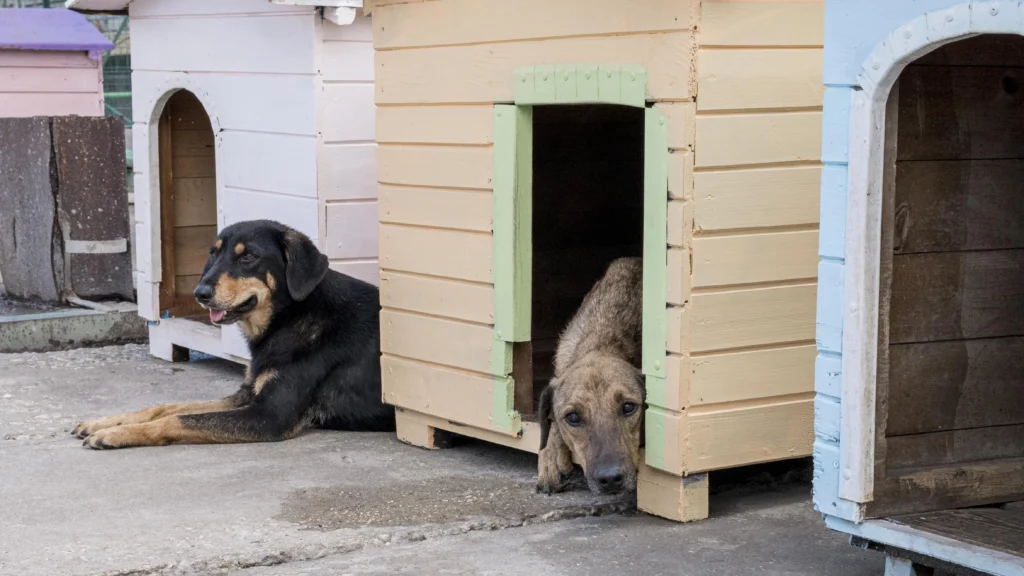
The Landscape of Dog Housing Laws
Unlike some states with specific laws mandating reasonable accommodations for service animals, Nevada lacks a single, unified dog housing law. Instead, the ability to rent with a dog falls under the purview of federal fair housing laws and individual landlord policies. Here’s a breakdown:
- Fair Housing Act (FHA): This federal law prohibits discrimination in housing based on several factors, including disability. For individuals with disabilities who rely on service animals, the FHA mandates reasonable accommodations, including allowing service animals in pet-restricted housing.
- Landlord Policies: Beyond service animals, individual landlords have the discretion to determine their pet policies. These policies can include:
- Pet restrictions: Landlords can choose to be entirely pet-free or restrict the type or number of pets allowed.
- Pet deposits and fees: Landlords might require additional deposits or fees from tenants with pets.
- Breed restrictions: Some landlords might have restrictions on specific dog breeds based on size, perceived temperament, or insurance limitations.
Finding Dog-Friendly Rentals in Nevada
While navigating pet policies can be challenging, here are some tips for finding dog-friendly rentals in Nevada:
- Search Tools: Several online rental platforms allow you to filter searches for pet-friendly properties.
- Contacting Landlords Directly: Landlords might be more open to well-behaved, well-trained dogs, so don’t hesitate to inquire directly about their pet policies.
- Highlight Your Dog’s Positive Qualities: If communicating with a landlord, showcase your dog’s good behavior and training to increase your chances of approval.
Your Rights and Responsibilities
As a tenant with a dog, it’s crucial to understand your rights and responsibilities:
- Compliance with Lease Agreements: Once you secure a pet-friendly rental, adhere to all pet-related clauses outlined in your lease agreement. This might include breed restrictions, weight limits, or limitations on the number of pets.
- Maintaining a Safe and Clean Environment: Being a responsible pet owner means cleaning up after your dog, preventing excessive noise, and ensuring your dog doesn’t cause damage to the property.
Building Trust with Your Landlord
While legal guidelines provide a framework, fostering a positive relationship with your landlord can go a long way:
- Full Disclosure: Be upfront about your dog during the application process.
- Offer References: Provide references from previous landlords who can vouch for your responsible pet ownership.
- Pet Insurance: Consider pet insurance to provide financial protection for any potential pet-related damage.
Resources for Finding Dog-Friendly Housing in Nevada
Here are some resources that can be helpful for dog owners seeking housing in Nevada:
- Nevada Fair Housing Council: This organization offers resources and guidance on fair housing laws and discrimination.
- Apartment Search Websites: Utilize online rental platforms with pet-friendly filters to streamline your search.
- Local Animal Shelters and Rescue Organizations: Some shelters and rescue groups might maintain listings of pet-friendly rentals.
Dog Adoption and Sale Laws in Nevada
Nevada, the “Silver State,” shimmers with vibrant cities, breathtaking landscapes, and countless wagging tails. Whether you’re considering adopting a furry companion or welcoming a new pup through purchase, understanding dog adoption and sale laws in Nevada is essential.

The Ethical Landscape: Responsible Choices for Dog Acquisition
Before exploring legalities, let’s emphasize responsible pet ownership. Consider adoption from shelters or rescues as a first option. These organizations provide loving homes for countless dogs in need.
The Adoption Process: Giving a Shelter Dog a Second Chance
Adopting a dog from a shelter or rescue organization is a rewarding experience. Here’s what to expect:
- Application Process: Most shelters require an application to assess your suitability as a pet owner.
- Meet and Greet: Once approved, you’ll have the opportunity to meet potential canine companions.
- Adoption Fees: Adoption fees typically cover vaccinations, spaying/neutering, and microchipping.
Shelter and Rescue Regulations
Shelters and rescues in Nevada often operate under specific guidelines:
- Animal Welfare Standards: Shelters must adhere to minimum animal welfare standards regarding housing, sanitation, and veterinary care.
- Vaccination and Sterilization: Most shelters adopt out dogs that are already vaccinated and spayed/neutered.
- Adoption Contracts: Adoption contracts outline your responsibilities as a pet owner and might include provisions for returning the dog if necessary.
Finding Reputable Shelters and Rescues
Here are some resources for finding reputable shelters and rescues in Nevada:
- Nevada Society for the Prevention of Cruelty to Animals (NSPCA): The NSPCA operates shelters and facilitates dog adoptions across the state.
- Petfinder: This online platform allows you to search for adoptable dogs from shelters and rescues in your area [link to Petfinder website.
- National Shelter Directory: This directory lists shelters and rescues across the United States [link to National Shelter Directory website.
Purchasing a Dog from a Breeder or Retailer
If you choose to purchase a dog from a breeder or retailer, Nevada has regulations in place to protect consumers:
- Retailer/Dealer Requirements: Retailers or dealers selling dogs must provide written statements disclosing the dog’s date of birth, source, lineage, and medical history to the purchaser.
- Display Requirements: Retailers must conspicuously display a notice outlining the legal requirement to disclose information about the dogs they sell.
- Prohibition on Sales at Swap Meets: The sale of live animals, including dogs, is prohibited at swap meets in Nevada (with exceptions for livestock events).
Finding Responsible Breeders and Retailers
Here are some tips for finding responsible breeders and retailers in Nevada:
- Word-of-Mouth Recommendations: Seek recommendations from veterinarians, dog trainers, or people you trust who have purchased dogs from responsible breeders.
- Research Breeder Reputation: Research the breeder’s reputation online and check for positive reviews and testimonials.
- On-Site Visit: Always schedule a visit to the breeder’s facility to assess the dog’s living conditions and meet the parents if possible.
- Ask Questions: Don’t hesitate to ask breeders about their breeding practices, health testing procedures, and commitment to the well-being of their dogs.
Protecting Yourself from Puppy Mills
Puppy mills are large-scale commercial breeding facilities that often prioritize profit over animal welfare. Here are some red flags to watch out for:
- Unwillingness to Allow On-Site Visits: Responsible breeders welcome potential buyers to see their facilities and interact with the dogs.
- Unrealistic Pricing: Extremely low prices might be a sign of poor breeding practices and unhealthy dogs.
- Vague or Unwillingness to Answer Questions: Responsible breeders are transparent about their dogs’ health and background.
Dog Park and Recreation Laws in Nevada
Nevada, the “Silver State,” boasts vibrant cities, stunning landscapes, and a growing population of canine residents. But with so many furry friends, navigating the world of dog parks and recreation can be confusing. This comprehensive guide explores the legalities surrounding dog parks and outdoor recreation with your pooch in Nevada, empowering you to enjoy safe and responsible outings.
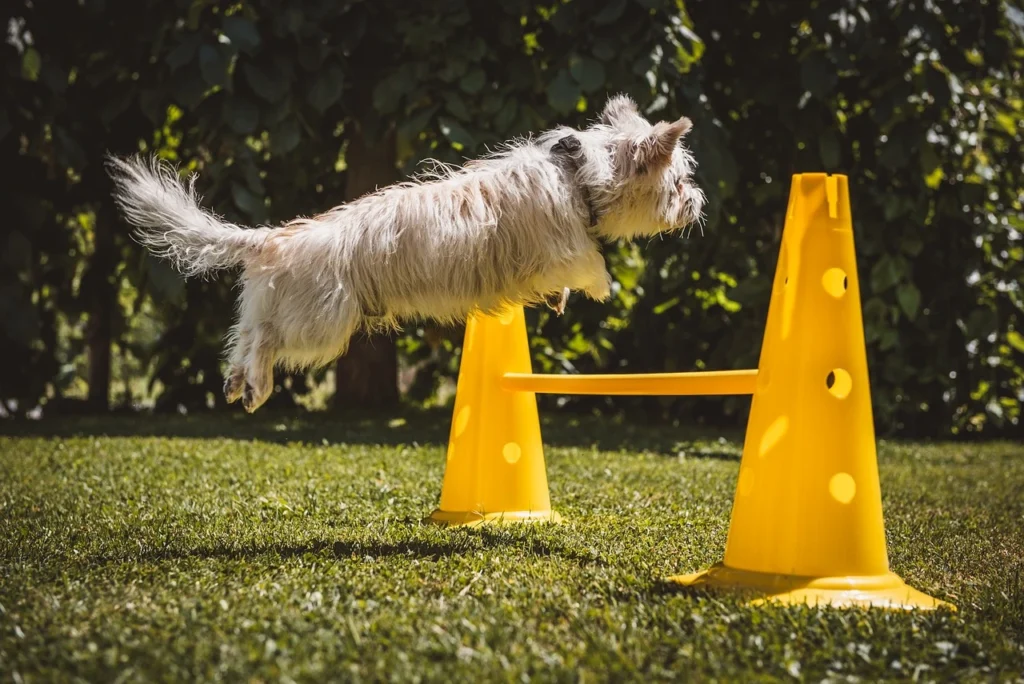
The Importance of Dog Parks and Recreation
Dog parks and outdoor recreation offer numerous benefits for both dogs and their owners:
- Exercise and Enrichment: Spending time outdoors provides crucial physical and mental stimulation for dogs.
- Socialization: Dog parks allow safe interaction with other canines, promoting good social behavior.
- Strengthening the Human-Animal Bond: Shared outdoor adventures contribute to a deeper connection between you and your furry friend.
- Boosting Community Spirit: Dog parks create opportunities for interaction and foster a sense of community among dog owners.
Dog Park Regulations: A Patchwork of Policies
While the importance of dog parks and recreation is undeniable, it’s crucial to understand that Nevada lacks a single, unified dog park law. Individual counties and cities establish their own ordinances governing dog park use and leash laws in public spaces. Here’s the key takeaway: researching local regulations is essential for a smooth and enjoyable experience for both you and your dog.
Finding Local Dog Park and Recreation Rules
The specifics of dog park and recreation regulations can vary significantly by location. Here’s how to find the relevant ordinance for your city or county:
- County Websites: Most county websites have a section dedicated to animal control or code enforcement, where you’ll likely find information on dog park regulations and leash laws in public spaces.
- Municipal Websites: Similarly, city websites often have information on local animal ordinances, including dog park rules and leash restrictions.
- Contacting Animal Control: Your local animal control agency can provide specific details on dog park use and leash laws in your area.
General Dog Park Etiquette
While following local laws is essential, responsible dog park etiquette goes beyond legal compliance. Here are some tips for a positive experience:
- Know Your Dog’s Temperament: Only bring your dog to a park if they are well-socialized and comfortable around other dogs.
- Maintain Control: Always keep your dog leashed until you enter the designated off-leash area. Once inside, ensure you have good verbal control of your dog.
- Clean Up After Your Dog: Always dispose of your dog’s waste properly using designated waste disposal stations.
- Respect Other Park Users: Be mindful of others’ space and keep your dog away from anyone who seems uncomfortable.
- Respect the Environment: Stick to designated trails and avoid letting your dog damage park property.
Exploring Recreation with Your Dog
Nevada offers diverse opportunities for outdoor recreation with your furry friend. Here are some things to consider:
- Leash Laws in Public Spaces: Most Nevada counties and cities require dogs to be leashed on public trails, sidewalks, and non-designated off-leash areas.
- Climate Considerations: Nevada experiences scorching summers. Choose hikes or activities that are appropriate for your dog’s breed and the weather conditions.
- Pet-Friendly Establishments: Many Nevada businesses, like breweries or outdoor cafes, are becoming increasingly dog-friendly. Look for signage or call ahead to confirm their pet policies.
Potential Risks and Safety Precautions
Outdoor recreation with your dog comes with some potential risks. Here’s how to prioritize safety:
- Vaccinations and Parasite Prevention: Ensure your dog is up-to-date on vaccinations and has proper parasite prevention medication to protect them from potential health risks.
- Identification: Make sure your dog has a collar with identification tags and consider microchipping for additional peace of mind.
- Be Aware of Surroundings: Watch out for wildlife, heatstroke, and other potential hazards while exploring with your dog.
- Respect Wildlife: Keep your dog leashed and under control around wildlife to protect both your dog and the animals in their natural habitat.
Advocating for Dog-Friendly Recreation
Nevada’s dog-friendly recreation landscape is constantly evolving. Here’s how you can contribute to more dog-inclusive outdoor spaces:
- Support Dog-Friendly Businesses: Patronize establishments that welcome dogs to promote dog-friendly recreation options.
- Contact Local Officials: Express your support for creating more dog-friendly trails or public spaces in your community.
- Promote Responsible Dog Ownership: Being a responsible owner and advocating for leash laws and waste disposal practices helps build trust and pave the way for increased dog-friendly recreational access.
Dog Food and Nutrition Laws in Nevada
Nevada, the “Silver State,” is a haven for outdoor adventures, dazzling cities, and countless canine companions. But ensuring your furry friend thrives goes beyond just exploring the beautiful landscapes. Providing proper nutrition is fundamental to a dog’s health and well-being. This comprehensive guide explores dog food and nutrition regulations in Nevada, empowering you to make informed choices about your dog’s diet.

The Landscape of Dog Food Regulation
While Nevada doesn’t have specific laws governing dog food ingredients or labeling, several existing federal regulations ensure the safety and quality of pet food sold within the state. Here’s a breakdown of the key regulatory bodies:
- Food and Drug Administration (FDA): The FDA is responsible for the safety of animal food, including dog food. They establish guidelines for manufacturing, labeling, and potential recalls of pet food products.
- Association of American Feed Control Officials (AAFCO): The AAFCO is a non-governmental organization that establishes nutrient profiles and labeling recommendations for pet food. While not a regulatory body, most pet food manufacturers adhere to AAFCO guidelines.
Understanding Dog Food Labels
Dog food labels can be confusing, but they hold valuable information about the nutritional content of the food. Here’s what to pay attention to:
- Guaranteed Analysis: This section lists the minimum and maximum percentages of protein, fat, fiber, and moisture content in the food.
- Ingredient List: Ingredients are listed in descending order by weight, with the first ingredient being the most prevalent.
- Nutritional Adequacy Statement: This statement indicates whether the food meets the nutritional requirements for a particular life stage (e.g., growth, maintenance, all life stages). Look for statements like “complete and balanced” or “formulated to meet the nutritional levels established by the AAFCO Dog Food Nutrient Profiles.”
Making Informed Choices
Beyond the information on the label, consider these factors when choosing dog food:
- Your Dog’s Age and Activity Level: Nutritional needs vary depending on your dog’s age, breed, and activity level. Puppies require different nutrients compared to adult or senior dogs.
- Breed-Specific Considerations: Certain breeds might have specific dietary needs due to size, activity level, or potential health predispositions. Consult your veterinarian for personalized recommendations.
- Consulting Your Veterinarian: Your veterinarian is a valuable resource for discussing your dog’s individual needs and recommending a suitable diet.
Avoiding Common Dog Food Misconceptions
Several misconceptions surround dog food choices. Here’s how to navigate them:
- Grain-Free Diets: While some dogs might benefit from grain-free diets due to allergies or sensitivities, grains can be a valuable source of nutrients for many canines.
- Boutique vs. Commercial Brands: Both boutique and commercial brands can offer high-quality dog food. Focus on the ingredients and nutritional content rather than solely on brand name.
- Raw Food Diets: Raw food diets can be beneficial for some dogs, but they require careful preparation and planning to ensure they’re nutritionally complete and safe. Consult with a veterinarian before transitioning your dog to a raw food diet.
Additional Resources for Dog Nutrition in Nevada
Here are some resources that can be helpful for dog owners in Nevada:
- Nevada State Board of Veterinary Medicine: This website provides information on licensed veterinarians in your area who can offer personalized guidance on dog nutrition.
- American Veterinary Medical Association (AVMA): The AVMA website offers a wealth of information on pet nutrition, including choosing a healthy diet and understanding dog food labels.
- Pet Food Institute: The Pet Food Institute is a non-profit organization that provides resources and information about pet food safety and nutrition.
Dog Health and Veterinary Care Laws in Nevada
Nevada, the “Silver State,” boasts vibrant cities, breathtaking landscapes, and countless canine companions. Keeping your furry friend healthy and happy is paramount. This comprehensive guide explores dog health and veterinary care laws in Nevada, empowering you to understand your responsibilities and navigate the legalities surrounding your dog’s well-being.

The Importance of Veterinary Care for Dogs
Regular veterinary checkups, vaccinations, and parasite prevention are crucial for maintaining your dog’s health and preventing potential diseases. Here’s why veterinary care is essential:
- Early Detection of Disease: Regular checkups can help detect health problems early, allowing for timely intervention and treatment.
- Vaccinations and Parasite Prevention: Vaccinations protect your dog from potentially life-threatening illnesses, while parasite prevention safeguards them from internal and external parasites.
- Improved Quality of Life: Proper veterinary care helps ensure your dog lives a long and healthy life, free from preventable diseases and discomfort.
Veterinary Licensing in Nevada
Nevada has regulations in place to ensure veterinary professionals are qualified to provide care for your dog. Here’s what you need to know:
- Nevada State Board of Veterinary Medical Examiners: This board oversees the licensing of veterinarians in Nevada. Only licensed veterinarians can diagnose and treat animal health problems.
- Verifying Veterinarian Credentials: You can verify a veterinarian’s license status on the Nevada State Board of Veterinary Medical Examiners website [link to Nevada State Board of Veterinary Medical Examiners website – invalid URL removed].
Animal Welfare Laws and Your Dog’s Health
Nevada has animal cruelty laws that protect your dog’s well-being. These laws generally prohibit intentional infliction of suffering or neglect. While not specific to veterinary care, they emphasize the importance of providing basic necessities for your dog’s health, including:
- Adequate Food and Water: Your dog must have access to clean, fresh water and a balanced diet appropriate for their age, breed, and activity level.
- Shelter from the Elements: Provide your dog with adequate shelter to protect them from extreme weather conditions.
- Veterinary Care: While not explicitly mandated, neglecting to provide necessary veterinary care in cases of illness or injury can be considered animal cruelty under Nevada law.
Vaccinations and Rabies Control
Vaccinations play a vital role in protecting your dog from preventable diseases. Here’s what you need to know about vaccinations in Nevada:
- Rabies Vaccination Requirements: Nevada law mandates that all dogs, cats, and ferrets be vaccinated against rabies. Vaccination requirements and deadlines can vary by county or city, so contact your local animal control agency for specifics.
- Other Recommended Vaccinations: Your veterinarian will recommend additional vaccinations based on your dog’s age, lifestyle, and potential risks in your area. These might include vaccinations for distemper, parvovirus, hepatitis, and leptospirosis.
Responsible Dog Ownership
While legal aspects are important, responsible dog ownership goes beyond following the law. Here’s how to ensure your dog’s health and well-being:
- Regular Veterinary Checkups: Schedule regular vet visits, even if your dog seems healthy.
- Parasite Prevention: Implement a consistent parasite prevention plan recommended by your veterinarian.
- Healthy Diet and Exercise: Provide your dog with a balanced diet and regular exercise to maintain optimal health.
- Spaying or Neutering: Spaying or neutering your dog can offer health benefits and contribute to population control.
- Identification: Ensure your dog has a collar with identification tags and consider microchipping for additional peace of mind.
Finding a Reputable Veterinarian in Nevada
Here are some resources to help you find a qualified veterinarian for your dog in Nevada:
- American Veterinary Medical Association (AVMA): The AVMA website allows you to search for veterinarians in your area.
- Nevada State Board of Veterinary Medical Examiners: The board’s website lists licensed veterinarians in Nevada.
- Asking for Recommendations: Talk to friends, family, or local shelters for recommendations on reputable veterinarians.
Dog Identification and Microchipping Laws in Nevada
Nevada, the “Silver State,” is a haven for outdoor adventures, dazzling cities, and a booming canine population. But ensuring your furry friend stays safe goes beyond just exploring the beautiful landscapes. Proper identification is crucial for reuniting lost dogs with their families. This comprehensive guide explores dog identification and microchipping laws in Nevada, empowering you to take proactive steps towards your dog’s safety.

The Importance of Dog Identification
While Nevada doesn’t have a single, unified law mandating dog identification, most counties and cities in the state have ordinances requiring dogs to wear some form of identification. Here’s why dog identification is essential:
- Lost Dog Recovery: A collar with identification tags is the first line of defense in reuniting lost dogs with their owners. Contact information on the tags allows Good Samaritans or animal control to reach you quickly.
- Licensing Requirements: Many Nevada counties and cities require dog licensing. A license tag attached to your dog’s collar serves as proof of licensing and can expedite the return process if your dog gets lost.
- Peace of Mind: Knowing your dog is wearing identification provides peace of mind, especially during walks or outdoor adventures.
Dog Identification Requirements in Nevada
Specific dog identification requirements can vary by location in Nevada. Here’s how to find the relevant ordinance for your city or county:
- County Websites: Most county websites have a section dedicated to animal control or code enforcement, where you’ll likely find information on dog identification requirements.
- Municipal Websites: Similarly, city websites often have information on local animal ordinances, including dog identification requirements.
- Contacting Animal Control: Your local animal control agency can provide specific details on dog identification requirements in your area.
Beyond the Legal Requirement
While a collar with identification tags is the minimum requirement, consider these additional options for enhanced safety:
- Durable Collar: Choose a well-fitting, durable collar made from high-quality materials to ensure it doesn’t break or come loose.
- Multiple Identification Tags: Include at least two tags on your dog’s collar. One should include your name, phone number, and address. Another tag can include your dog’s license information (if applicable) or a microchip identification number.
- Engraved Tags: Consider engraved tags for better readability and durability compared to printed tags.
The Rise of Microchipping
Microchipping is a safe and effective method for permanently identifying your dog. Here’s what you need to know:
- Microchip Implantation: A microchip, about the size of a rice grain, is implanted under your dog’s skin between the shoulder blades. The procedure is similar to a routine vaccination and requires minimal recovery time.
- Microchip Information: The microchip stores a unique identification number linked to your contact information in a national database.
- Recovery Process: If your dog gets lost and is scanned by a veterinarian or animal shelter, the microchip can be read, revealing your contact details and facilitating a swift reunion.
Microchipping Laws in Nevada
While there’s no statewide mandate for microchipping in Nevada, some cities have implemented ordinances encouraging or requiring microchipping:
- Las Vegas: In 2023, Las Vegas passed an ordinance requiring microchipping for all dogs and cats over four months old [link to Las Vegas requiring microchips for cats and dogs Las Vegas Sun lasvegassun.com].
Exploring the Benefits of Microchipping
Microchipping offers numerous advantages over traditional identification methods:
- Permanence: Microchips are permanent and cannot be lost or fall off like collar tags.
- Increased Recovery Rates: Studies show microchipped dogs have a significantly higher chance of being reunited with their owners compared to dogs with only tags.
- Travel Convenience: Microchipping is often a requirement for traveling with your dog to certain destinations.
Finding a Reputable Microchipper in Nevada
Here are some resources to help you find a qualified professional to microchip your dog in Nevada:
- Veterinarians: Most veterinary clinics offer microchipping services.
- Animal Shelters: Some animal shelters might offer microchipping at discounted rates or during adoption events.
- Online Resources: Websites like the American Kennel Club (AKC) Reunite program allow you to search for microchippers in your area.
Dog Breeding and Genetics Laws in Nevada
Nevada, the “Silver State,” boasts vibrant cities, stunning landscapes, and a growing population of furry companions. For those considering becoming a dog breeder, understanding the legalities surrounding breeding practices and canine genetics is crucial. This comprehensive guide explores dog breeding and genetics laws in Nevada, empowering you to navigate responsible breeding practices within the legal framework.
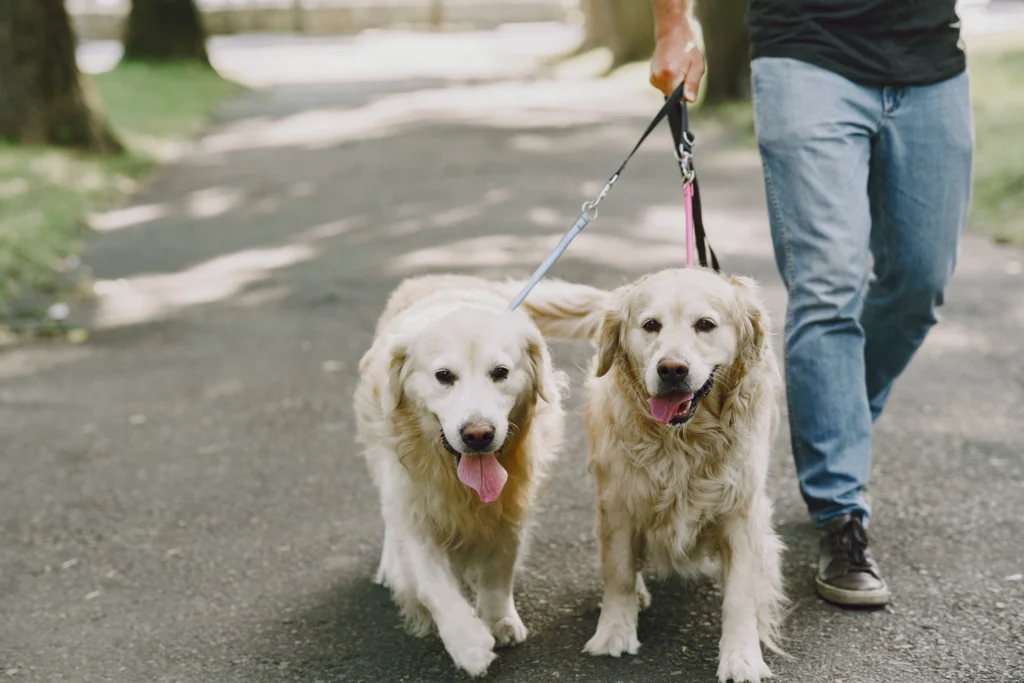
The Landscape of Dog Breeding Laws: A Patchwork of Regulations
Nevada lacks a single, unified law governing dog breeding. Regulations exist at the state and local levels, with a focus on preventing cruelty and promoting responsible breeding practices. Here’s a breakdown of the key regulatory bodies:
- Nevada Department of Agriculture (NDA): The NDA is responsible for licensing and inspecting commercial kennels, including those involved in dog breeding.
- Local Animal Control Ordinances: Many Nevada counties and cities have ordinances regulating animal breeding, including dog breeding. These ordinances might address kennel licensing requirements, health inspections, and limitations on the number of litters a breeder can produce.
Definition of a Dog Breeder in Nevada
Nevada law defines a “breeder” as a person who is responsible for the operation of a commercial establishment engaged in the business of breeding dogs or cats for sale or trade. This definition clarifies that casual breeding or hobby breeding doesn’t necessarily fall under these regulations.
Licensing Requirements for Dog Breeders in Nevada
If you plan to operate a commercial dog breeding kennel in Nevada, obtaining a license from the Nevada Department of Agriculture (NDA) is mandatory. Here’s what you need to know:
- Kennels Subject to Licensing: The NDA licensing requirement applies to any facility where breeding dogs are kept, offered for sale, or exhibited.
- Application Process: Contact the NDA for licensing applications and information on specific requirements, which might include facility inspections, recordkeeping, and adherence to animal welfare standards.
- Ongoing Compliance: Licensed kennels are subject to inspections by NDA officials to ensure compliance with regulations.
Local Animal Control Ordinances
In addition to state licensing, many Nevada counties and cities have their own ordinances regulating dog breeding. These ordinances can vary significantly, so it’s crucial to research the specific regulations in your area. Here’s how to find the relevant ordinance:
- County Websites: Most county websites have a section dedicated to animal control or code enforcement, where you might find information on dog breeding regulations.
- Municipal Websites: Similarly, city websites often have information on local animal ordinances, including dog breeding regulations.
- Contacting Animal Control: Your local animal control agency can provide specific details on dog breeding regulations in your area.
Responsible Breeding Practices
Legal compliance is essential, but responsible breeding goes beyond following regulations. Here are some core principles to embrace:
- Breeder Knowledge and Expertise: Responsible breeders possess a deep understanding of the breed they work with, including genetics, health testing, and proper breeding practices.
- Selective Breeding: Responsible breeders focus on breeding healthy, well-tempered dogs that conform to breed standards. They prioritize genetic health testing to avoid passing on hereditary conditions.
- Animal Welfare: Providing proper housing, sanitation, veterinary care, and socialization is paramount for the well-being of breeding dogs and their offspring.
Canine Genetics and Health Testing
Knowledge of canine genetics is crucial for responsible breeding. Here’s why health testing is important:
- Identifying Genetic Diseases: Many dog breeds are predisposed to specific genetic diseases. Health testing allows breeders to identify carriers and avoid breeding pairs that could pass on these conditions.
- Promoting Breed Health: By prioritizing health testing and avoiding breeding dogs with genetic issues, responsible breeders contribute to the overall health and well-being of their chosen breed.
- Transparency and Informed Breeding Decisions: Health testing results should be transparently shared with potential puppy buyers, allowing them to make informed decisions.
Resources for Responsible Dog Breeding in Nevada
Here are some resources that can be helpful for dog breeders in Nevada:
- Nevada Department of Agriculture (NDA): The NDA website provides information on kennel licensing requirements and animal welfare regulations.
- American Kennel Club (AKC): The AKC offers resources and educational programs for breeders, including information on health testing and responsible breeding practices.
Dog Environmental Impact Laws in Nevada
Nevada, the “Silver State,” is a haven for outdoor adventures with your furry friend. From exploring majestic red rock canyons to hiking scenic trails, Nevada offers a wealth of opportunities to connect with nature alongside your canine companion. However, with this enjoyment comes the responsibility to minimize your dog’s environmental impact.
While Nevada doesn’t have specific laws solely focused on dog environmental impact, there are existing regulations and best practices that contribute to a more sustainable dog ownership experience. This comprehensive guide explores how to be a responsible dog owner who minimizes their pup’s environmental footprint in the Silver State.

The Importance of Responsible Dog Ownership for the Environment
Dogs can have a significant impact on the environment through waste disposal, wildlife disturbance, and habitat modification. Let’s delve into the potential concerns:
- Waste Management: Improperly disposed-of dog waste can contribute to water pollution and contaminate ecosystems.
- Wildlife Disturbance: Off-leash dogs can disrupt wildlife behavior, frighten animals, and disrupt nesting or breeding grounds in sensitive areas.
- Habitat Modification: Foot traffic and digging by dogs can damage vegetation and contribute to soil erosion, especially in delicate ecosystems.
Understanding Existing Regulations that Address Dog Environmental Impact
Nevada has existing regulations that indirectly address dog environmental impact. Here’s a breakdown of how these regulations contribute to responsible dog ownership:
- Leash Laws: Most Nevada counties and cities have leash laws mandating dogs to be leashed in public spaces like parks, trails, and sidewalks. This helps minimize wildlife disturbance and allows for better control over waste disposal.
- Waste Disposal Laws: Many Nevada municipalities have ordinances requiring dog owners to pick up and dispose of their pet’s waste properly. These laws often mandate carrying waste bags and disposing of waste in designated receptacles.
- Wildlife Protection Laws: Nevada has laws protecting wildlife species and their habitats. Responsible dog ownership practices prevent unnecessary disturbance and contribute to protecting these valuable resources.
Best Practices for Minimizing Your Dog’s Environmental Impact
Beyond legal regulations, here are some best practices for minimizing your dog’s environmental impact in Nevada:
- Responsible Waste Disposal: Always carry waste bags and dispose of your dog’s waste properly in designated bins. Consider eco-friendly waste bags for a more sustainable approach.
- Respecting Leash Laws: Follow leash laws in all public spaces. Leashing your dog minimizes disturbance to wildlife and allows for better control over their movement and waste disposal.
- Leave No Trace Principles: Adhere to Leave No Trace principles when venturing outdoors with your dog. Keep your dog on leash, avoid sensitive habitats, and minimize any disruption to the natural environment.
- Educating Yourself and Others: Research and understand the local flora and fauna to avoid sensitive areas. Educate others about responsible dog ownership practices to promote a collective effort towards a more sustainable dog-friendly environment.
Sustainable Choices for Dog Owners
Several choices can make your dog ownership experience more eco-friendly:
- Compostable Dog Waste Bags: Opt for compostable dog waste bags that break down naturally instead of traditional plastic bags.
- Eco-Friendly Dog Food: Consider brands that use sustainable ingredients and packaging for your dog’s food.
- Water Conservation: Use low-flow water bowls and minimize water waste during bath time.
- Durable Dog Products: Invest in well-made, durable dog toys and accessories to avoid generating unnecessary waste from disposable products.
Promoting Sustainable Dog Ownership in Nevada
Here are some ways to advocate for a more sustainable dog-friendly environment in Nevada:
- Supporting Eco-Friendly Businesses: Patronize businesses that offer eco-friendly dog products and services.
- Participating in Clean-Up Events: Join local clean-up events in your community to ensure a clean environment for both dogs and humans.
- Spreading Awareness: Share information about responsible dog ownership and minimizing environmental impact with fellow dog owners.
Dog Behavioural Training Laws in Nevada
Nevada, the “Silver State,” boasts vibrant cities, stunning landscapes, and a growing population of furry companions. Training your dog for good behavior not only strengthens your bond but also contributes to a more harmonious community. This comprehensive guide explores dog behavioral training laws and resources in Nevada, empowering you to navigate the legalities and find the right training approach for your canine friend.

Public Safety and Responsible Ownership
While Nevada doesn’t have specific laws mandating dog behavioral training, regulations and best practices focus on public safety and responsible dog ownership. Here’s how these principles translate into practical considerations:
- Preventing Dog Bites: Proper training helps reduce the risk of dog bites, promoting safety for both dogs and humans in public spaces.
- Nuisance Barking: Excessive barking can disrupt neighborhoods. Training addresses the underlying causes and promotes peaceful coexistence.
- Leash Laws and Responsible Control: Leash laws are in place to maintain control over your dog and minimize disruption in public spaces. Effective training allows you to confidently manage your dog on leash.
Animal Cruelty Laws and Behavioral Training
Nevada has animal cruelty laws that prohibit intentional infliction of suffering or neglect. While not directly related to training methods, these laws indirectly influence approaches to dog behavioral modification. Here’s the key takeaway:
- Positive Reinforcement Training: Positive reinforcement techniques, which reward desired behaviors, are generally considered humane and effective. These methods align well with Nevada’s animal cruelty prevention laws.
- Avoiding Aversive Training Methods: Techniques that rely on pain, fear, or intimidation are discouraged due to potential animal cruelty concerns.
Finding a Qualified Dog Trainer in Nevada
There are numerous dog trainers in Nevada, but choosing the right one for your dog’s needs is crucial. Here’s how to find a qualified professional:
- Professional Associations: Look for trainers certified by reputable organizations like the Certification Council for Professional Dog Trainers (CCPDT) or the Association of Professional Dog Trainers (APDT). These organizations maintain high standards for ethical and effective training practices.
- Training Methods: Research the training methods employed by different trainers. Focus on those who prioritize positive reinforcement and force-free techniques.
- Experience and References: Seek trainers with experience in addressing your dog’s specific behavioral concerns. Request references from past clients to gauge the trainer’s effectiveness.
Benefits of Dog Training
While legalities are important, the benefits of dog training extend far beyond compliance:
- Improved Communication: Training strengthens the bond between you and your dog by establishing clear communication and mutual understanding.
- Reduced Behavioral Issues: Training addresses unwanted behaviors like barking, jumping, chewing, or leash pulling, leading to a calmer and more manageable dog.
- Enhanced Safety: A well-trained dog is more controllable in public settings, minimizing risks and promoting safety for both your dog and others.
- Increased Confidence: Both you and your dog gain confidence through successful training experiences, fostering a more enjoyable and fulfilling relationship.
Resources for Dog Behavioral Training in Nevada
Here are some resources that can be helpful for dog owners in Nevada seeking training solutions:
- American Kennel Club (AKC) Training Resources: The AKC website provides information on locating dog trainers in your area, along with resources on basic training principles.
- Association of Professional Dog Trainers (APDT): The APDT website allows you to search for certified dog trainers in Nevada.
- Positive Reinforcement Dog Trainers Association (PRDTA): The PRDTA website offers resources on finding positive reinforcement dog trainers [link to Positive Reinforcement Dog Trainers Association website.
Dog Protection and Rescue Laws in Nevada
Nevada, the “Silver State,” boasts vibrant cities, breathtaking landscapes, and a dedicated community of animal lovers. Protecting and rescuing dogs in need is a crucial aspect of responsible pet ownership. This comprehensive guide delves into dog protection and rescue laws in Nevada, empowering you to understand your responsibilities and navigate the legal framework surrounding canine welfare.

The Importance of Dog Protection Laws
While Nevada lacks a single, unified dog protection law, existing regulations at the state and local levels address animal cruelty and ensure basic standards of care for dogs. Here’s a breakdown of the key areas:
- Nevada Revised Statutes (NRS) Chapter 574: This chapter outlines animal cruelty laws in Nevada. It prohibits intentional infliction of suffering, torture, neglect, abandonment, or improper transportation of animals.
- Local Animal Control Ordinances: Most Nevada counties and cities have animal control ordinances that further define animal cruelty within their jurisdictions. These ordinances might address specific concerns like tethering restrictions, access to food and water, and limitations on leaving pets unattended in vehicles.
Animal Cruelty Laws and Their Impact on Dog Protection
Nevada’s animal cruelty laws play a vital role in protecting dogs. Here’s how these laws translate into practical applications:
- Minimum Standards of Care: These laws mandate providing dogs with basic necessities like adequate food, water, shelter, and veterinary care to prevent suffering from neglect.
- Investigating Abuse and Neglect: Animal control officers can investigate suspected cases of animal cruelty, ensuring dogs receive appropriate care and holding abusers accountable.
- Fostering Responsible Ownership: Animal cruelty laws deter neglectful behavior and promote responsible ownership practices that prioritize dog welfare.
While these laws establish a baseline for dog protection, understanding the limitations is also important:
- Focus on Intentional Acts: Animal cruelty laws typically require proof of intentional infliction of suffering or neglect. Accidental situations or lack of knowledge might not fall under their scope.
- Reliance on Reporting: Animal control relies on reports from concerned citizens to investigate potential cases of abuse.
The Role of Animal Shelters and Rescue Organizations in Dog Protection
Animal shelters and rescue organizations play a critical role in safeguarding dogs in Nevada. Here’s how these entities contribute to dog protection:
- Animal Intake and Placement: Shelters take in stray, abandoned, or surrendered dogs, providing them with temporary housing, medical care, and rehabilitation.
- Adoption Services: Animal shelters and rescue organizations work tirelessly to find loving forever homes for the dogs in their care.
- Public Education: These organizations often raise awareness about responsible dog ownership, spaying/neutering, and preventing pet homelessness.
Nevada’s Abandoned and Neglected Animal Laws
Nevada has specific laws regarding abandoned and neglected animals, offering additional protection for dogs:
- Duty to Report: These laws might mandate reporting suspected cases of animal abandonment or neglect to animal control authorities.
- Holding Owners Accountable: Owners who abandon or neglect their dogs might face fines, court appearances, or even potential animal cruelty charges in severe cases.
- Recovery of Abandoned Animals: Animal control can take custody of abandoned dogs and attempt to locate their owners. If ownership cannot be established, the dog might become eligible for adoption.
Finding a Reputable Dog Rescue Organization in Nevada
If you’re considering adopting a dog from a rescue organization in Nevada, here’s how to find a reputable one:
- Research and Reviews: Research different rescue organizations in your area and read online reviews from past adopters.
- Adoption Process and Requirements: Review the adoption process and requirements outlined by each rescue organization.
- Facility Visits and Transparency: Consider visiting rescue facilities to assess the environment and ensure animal welfare standards are met.
Responsible Dog Ownership Practices
Legal compliance is essential, but responsible dog ownership goes beyond following regulations. Here are some key principles to embrace:
- Providing a Loving Home: Ensure your dog has a safe, loving, and stimulating environment to thrive.
- Meeting Basic Needs: Provide your dog with adequate food, water, shelter, veterinary care, exercise, and mental stimulation.
- Proper Identification and Licensing: Identify your dog with a collar and tags, and consider microchipping for permanent identification. Obtain a dog license if required by your city or county.
- Spaying/Neutering: Spaying or neutering your dog can contribute to population control and potentially reduce certain health risks.
- Preventative Measures: Secure your property with fencing to prevent escape and keep your dog on leash during walks to ensure safety.
Dog Entertainment and Work Laws in Nevada
Nevada, the “Silver State,” is a land of glittering casinos, stunning natural landscapes, and a growing population of furry companions. While our canine friends might be brimming with personality and talent, navigating the legalities of dog entertainment and work in Nevada requires careful consideration. This comprehensive guide explores the regulations surrounding these areas, empowering you to understand the legalities and make informed decisions about your dog’s involvement.

The Entertainment Industry: Lights, Camera, (Maybe Not) Dog!
While Nevada is a hub for dazzling entertainment, specific laws regarding dog participation are limited. Here’s what we know:
- Absence of a Unified Law: Nevada lacks a single, comprehensive law governing the use of animals in entertainment.
- Federal Regulations: The Animal Welfare Act (AWA) enforced by the United States Department of Agriculture (USDA) sets minimum standards for the care and handling of animals, including those used in entertainment. These standards address housing, feeding, veterinary care, transportation, and handling practices [link to Animal Welfare Act (AWA) website – [invalid URL removed]].
Applicability of the Animal Welfare Act (AWA)
The AWA applies to animals exhibited to the public, including those used in performances or entertainment. This means:
- Licensing Requirements: Facilities exhibiting animals to the public might need to obtain a USDA license and comply with AWA regulations regarding animal care, handling, and transportation.
- Focus on Animal Welfare: The AWA prioritizes the well-being of animals used in entertainment, ensuring they receive proper housing, nutrition, veterinary care, and handling practices that minimize stress and injury.
Important Considerations for Dog Entertainment in Nevada
While the AWA provides a framework, here are additional factors to consider:
- Local Ordinances: Some Nevada cities or counties may have their own ordinances regulating animal use in entertainment. Research any local regulations applicable in your area.
- Animal Welfare Concerns: Prioritize your dog’s well-being above all else. Entertainment activities should be enjoyable, stress-free, and not physically demanding for your pet.
- Breed and Temperament: Choose activities that suit your dog’s breed and temperament. Not all dogs enjoy the spotlight or perform well under pressure.
Exploring Dog-Friendly Entertainment Options
While large-scale dog performances may be limited, several dog-friendly entertainment options exist in Nevada:
- Dog Shows and Competitions: Nevada hosts dog shows showcasing specific breeds and evaluating conformation and adherence to breed standards. These events can be a fun and rewarding experience for well-socialized dogs.
- Dog-Friendly Events: Many Nevada events welcome canine companions. Research dog-friendly festivals, walks, or outdoor activities to bond with your furry friend in a fun and enriching way.
The World of Work: When Canines Clock In (Unofficially)
Nevada’s legalities surrounding working dogs are more nuanced. Here’s what you need to know:
- No Specific Laws: There aren’t any state-level laws specifically regulating the use of dogs in work settings.
- Federal Regulations for Service Animals: The Americans with Disabilities Act (ADA) defines service animals and protects the right of individuals with disabilities to be accompanied by such animals in public spaces, including workplaces with public accommodation functions [link to Americans with Disabilities Act (ADA) website – [invalid URL removed]].
- Focus on Training and Task Performance: Service animals are individually trained to perform specific tasks that mitigate a disability.
Understanding the Distinction Between Service Animals and Working Animals
Service animals are legally distinct from working animals. Here’s the key difference:
- Service Animals: These animals are trained to perform specific tasks that directly assist individuals with disabilities, such as guide dogs for the visually impaired or hearing assistance dogs.
- Working Animals: These animals perform work duties but are not specifically trained to assist a person with a disability. Examples include police dogs, search and rescue dogs, or therapy dogs.
Dog Technology and Innovation Laws in Nevada
Nevada, the “Silver State,” is a haven for innovation, boasting vibrant cities, breathtaking landscapes, and a tech-savvy population. This extends to our furry companions, as dog technology and health innovations are rapidly evolving. But with this progress comes the question – what are the legal implications in Nevada? This comprehensive guide delves into dog technology and innovation laws, empowering you to navigate the exciting yet uncharted territory of integrating tech into your dog’s life.

The Evolving Landscape: A Patchwork of Regulations
Nevada currently lacks a single, unified law governing dog technology products or pet tech innovations. Regulations exist at the federal level and might be further addressed by local ordinances. Here’s a breakdown:
- Federal Food, Drug, and Cosmetic Act (FD&C Act): The U.S. Food and Drug Administration (FDA) regulates animal drugs and medical devices under the FD&C Act. This means any technology marketed for diagnosing or treating dog health concerns likely falls under FDA oversight and requires approval before being sold commercially
- Federal Trade Commission (FTC): The FTC protects consumers from unfair and deceptive advertising practices. This applies to pet tech products, ensuring advertising claims are truthful and supported by evidence.
- Potential Local Ordinances: Some Nevada cities or counties might have ordinances related to pet businesses or animal welfare, which could indirectly impact the use of certain dog technology products.
Understanding the FDA’s Role in Dog Health Tech
The FDA plays a crucial role in ensuring the safety and efficacy of dog health technology products:
- Pre-Market Approval: Many dog health tech products, like diagnostic tests or treatment devices, require FDA pre-market approval before being marketed or sold. This ensures they meet safety and effectiveness standards.
- Mislabeling and False Claims: The FDA cracks down on misleading or false claims about dog health tech products. This protects consumers from investing in ineffective or potentially harmful technologies.
Exploring Popular Dog Technology Products in Nevada
While specific regulations are still evolving, several popular dog technology products are available in Nevada:
- Wearable Activity Trackers: These devices monitor your dog’s activity levels, sleep patterns, and even calorie burn, providing insights into their overall health and fitness.
- Smart Feeders: These connected feeders allow you to remotely schedule and monitor your dog’s meals, promoting healthy portion control and offering convenience.
- Remote Training Collars: These collars utilize various techniques like vibration or beep to train your dog remotely. However, responsible and positive reinforcement training methods are generally recommended.
Important Considerations for Using Dog Technology Products
While dog technology offers exciting possibilities, here are some crucial considerations:
- Prioritize Your Dog’s Well-Being: Always prioritize your dog’s safety and comfort. Avoid technologies that might cause stress, discomfort, or potential harm.
- Focus on Enrichment, Not Replacement: Tech should enhance your dog’s life, not replace essential elements like playtime, exercise, and human interaction.
- Research and Product Reviews: Thoroughly research dog technology products before purchase. Read reviews, consider features, and choose reputable brands.
- Consult Your Veterinarian: Discuss any dog tech product with your veterinarian to ensure it’s compatible with your dog’s health and needs.
The Future of Dog Technology and Innovation in Nevada
Nevada’s tech landscape continues to evolve, and dog technology is poised for further development. Here’s a glimpse into the future:
- Advanced Health Monitoring: Tech advancements might lead to more sophisticated health monitors, potentially offering early detection of health issues or remote veterinary consultations.
- AI-Powered Training Tools: Artificial intelligence (AI) could personalize training approaches for dogs, tailoring instructions and techniques to individual needs and learning styles.
- Focus on Responsible Innovation: Responsible innovation will be crucial, prioritizing animal welfare and ensuring dog tech products enhance, not replace, the human-animal bond.
Human Coexistence Laws in Nevada
Nevada, the “Silver State,” is a land of dazzling lights, breathtaking landscapes, and a growing population of dog lovers. Living alongside our canine companions enriches our lives, and fostering a strong human-animal bond is crucial for both happiness and well-being. This comprehensive guide dives into laws promoting cohabitation and positive interactions between dogs and humans in Nevada, empowering you to create a harmonious and fulfilling relationship with your furry friend.

The Spirit of Human-Dog Coexistence
While Nevada doesn’t have specific laws solely focused on human-dog cohabitation, several existing regulations and legal principles indirectly contribute to a positive co-existence environment. Here’s how these facets work together:
- Animal Cruelty Laws: Nevada’s animal cruelty laws, outlined in NRS Chapter 574, prohibit neglect and abuse. This ensures dogs receive basic necessities for survival and well-being, fostering a foundation for a positive human-dog bond.
- Public Access Laws: Many Nevada cities and counties allow dogs in designated public spaces like parks and trails, provided they are leashed and under control. This facilitates opportunities for dogs and humans to enjoy shared experiences outdoors, strengthening the bond.
- Responsible Dog Ownership: While not a law, responsible dog ownership is a cornerstone of human-dog cohabitation. This involves proper training, socialization, meeting your dog’s needs, and providing them with love and enrichment.
Understanding the Importance of Socialization for Human-Dog Coexistence
Socialization plays a vital role in promoting positive interactions between dogs and humans. Here’s why it matters:
- Reduced Fear and Anxiety: Proper socialization exposes dogs to different people, animals, and environments, making them less fearful and more comfortable in various social settings. This fosters a more relaxed and enjoyable experience for both humans and dogs when coexisting.
- Improved Training Outcomes: Socialized dogs are generally more receptive to training, allowing humans to more effectively communicate and build a positive working relationship with their canine companions.
- Enhanced Public Safety: Socialized dogs are less likely to exhibit aggression towards other dogs or unfamiliar people, contributing to a safer environment for everyone in public spaces.
Resources for Socializing Your Dog in Nevada
Nevada offers various resources to help you socialize your dog:
- Puppy Kindergarten Classes: Many veterinary clinics and pet stores offer puppy kindergarten classes, providing a safe and controlled environment for pups to socialize with other dogs and learn basic obedience skills.
- Dog Parks: Designated dog parks allow dogs to run, play, and interact with each other in a fenced-in area. This can be a fantastic way for your dog to socialize and release energy under supervision.
- Dog Training Classes: Dog training classes not only teach obedience skills but also provide opportunities for dogs to interact with other dogs and their human handlers, promoting positive socialization experiences.
Laws and Regulations Supporting Dog-Friendly Establishments
Some Nevada laws and regulations indirectly support dog-friendly establishments, fostering more opportunities for human-dog interactions:
- Health Department Regulations: While Nevada health departments regulate food establishments, some regulations might allow outdoor patio dining with well-behaved leashed dogs.
- Local Ordinances: Certain Nevada cities or counties may have ordinances allowing dog-friendly patios or designated areas within businesses where well-behaved leashed dogs are permitted.
- Responsible Business Practices: Many businesses choose to be dog-friendly as a way to attract customers. Research establishments that welcome canine companions for a fun outing with your dog.
Finding Dog-Friendly Activities in Nevada
Nevada boasts a wealth of dog-friendly activities you can enjoy with your furry friend:
- Hiking and Camping: Many Nevada trails and campgrounds welcome leashed dogs, allowing you to explore the state’s natural beauty together.
- Dog-Friendly Events: Check for local events specifically geared towards dogs, such as dog festivals, charity walks, or dog-friendly brewery gatherings.
- Dog Training Classes: Dog training classes offer not only valuable learning experiences but also opportunities for socialization and bonding between you and your dog.
Other Relevant Dog Laws in Nevada
Canine Good Citizen (CGC) Programs and Legal Benefits
- CGC Programs: The American Kennel Club (AKC) offers Canine Good Citizen (CGC) programs, certifying dogs who demonstrate basic obedience skills and good manners in public settings.
- Potential Benefits: While not offering direct legal benefits in Nevada, CGC certification might:
- Reduced Insurance Rates: Some pet insurance companies may offer discounts for CGC-certified dogs.
- Relaxed Rules at Dog-Friendly Establishments: Some dog parks or businesses might have stricter entry requirements for non-certified dogs.
Dog Insurance and Coverage Laws in Nevada
- Pet Insurance: Nevada doesn’t mandate pet insurance, but it’s a wise financial decision for unexpected veterinary bills.
- Coverage Options: Pet insurance policies vary, so compare coverage for accidents, illnesses, and wellness care to find a plan that suits your dog’s needs.
Laws Regarding Dogs in Hot Cars and Animal Endangerment
- Animal Cruelty Laws: Nevada’s animal cruelty laws (NRS Chapter 574) prohibit leaving animals unattended in vehicles under conditions that could cause harm or death. This includes hot cars.
- Potential Consequences: Leaving your dog in a hot car can result in fines, animal cruelty charges, or even your dog being removed from your care.
Legal Aspects of Dog Parks and Shared Spaces
- Leash Laws: Most Nevada public spaces require dogs to be leashed, with designated off-leash areas like dog parks being exceptions.
- Waste Removal: Nevada likely has local ordinances requiring dog owners to pick up and dispose of their dog’s waste in public spaces, including dog parks.
- Socialization and Responsibility: Dog parks offer opportunities for socialization, but responsible dog ownership is crucial. Ensure your dog is up-to-date on vaccinations and has good recall before letting them off-leash in a shared space.
Dog-Related Property Damage and Homeowner’s Insurance in Nevada
- Liability: Nevada follows common law negligence principles. This means dog owners can be held liable for any property damage caused by their dog.
- Homeowner’s Insurance: Most homeowner’s insurance policies cover dog-related liability to a certain extent. Review your policy and consider additional liability coverage if necessary.
Service and Working Dog Laws in Employment and Public Access
- Service Animals vs. Working Animals: Nevada adheres to the Americans with Disabilities Act (ADA) definition of service animals, granting them access to public spaces and workplaces.
- Working Animals: Working animals like police dogs or therapy dogs might require permission from employers or specific establishments for access.
Animal Welfare and Protection Laws Against Neglect and Abandonment
- NRS Chapter 574: This chapter outlines Nevada’s animal cruelty laws, prohibiting neglect and abandonment of animals. This includes providing basic necessities like food, water, shelter, and veterinary care.
- Reporting Requirements: Some Nevada localities might have ordinances requiring residents to report suspected cases of animal neglect or abandonment to animal control authorities.
Nevada offers a vibrant environment for both humans and their canine companions. This guide explored various aspects of dog ownership within the state’s legal framework. From understanding animal cruelty prevention laws and responsible training practices to navigating dog-friendly establishments and shared spaces, the focus remains on promoting positive human-dog cohabitation. Compliance with dog laws isn’t just about avoiding penalties; it ensures the well-being of our furry friends and fosters a safer, more harmonious community for all Nevadans. Responsible ownership strengthens the human-animal bond, creating a fulfilling life for both you and your cherished dog.
FAQs
Do I need to license my dog in Nevada?
It depends on your location. Incorporated areas like Las Vegas require dog licenses, while unincorporated areas might not. Always check with your city or county animal control department for specific licensing requirements.
What are the requirements for spaying/neutering my dog in Nevada?
There’s no statewide mandate for spaying/neutering dogs in Nevada. However, some cities or counties might have ordinances encouraging or incentivizing sterilization procedures. Additionally, breeding dogs typically require specific permits.
Can I take my dog to a dog park without vaccinations?
No. Most Nevada dog parks require proof of current vaccinations for rabies and other core canine diseases to protect the health of all dogs using the facility.
What are the rules for traveling with my dog in Nevada?
Nevada doesn’t have specific travel regulations for dogs within the state. However, if you’re traveling across state lines, check with the destination state’s animal control department for any health certificate or quarantine requirements.
Who is responsible for enforcing dog laws in Nevada?
Enforcement primarily falls on local authorities. Animal control officers from your city or county are responsible for investigating complaints, enforcing leash laws, and addressing animal cruelty concerns.




